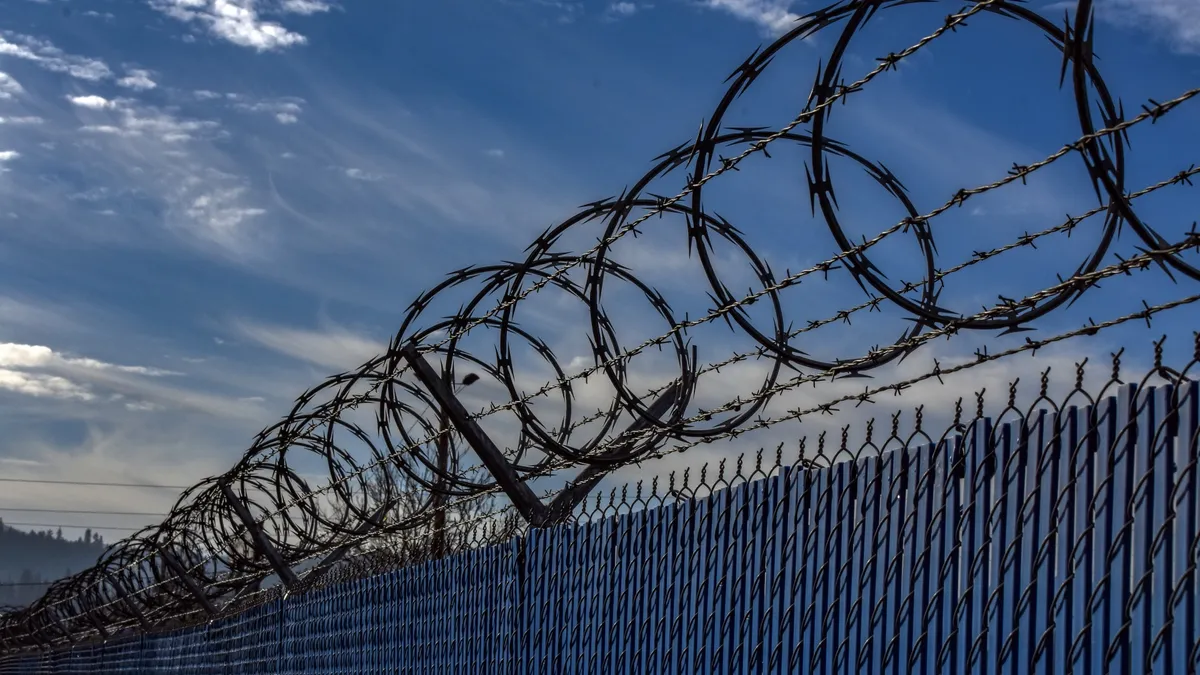Dive Brief:
- Formerly incarcerated individuals face a tougher road to employment during the COVID-19 pandemic, but re-entry support has been lacking as localities seek to reduce jail and prison capacity, according to an April 15 podcast from the nonprofit National Skills Coalition.
- Prior to the pandemic, citizens returning from incarceration experienced an unemployment rate of 30%, the coalition said, and this population faced a lack of support and training as well as perceptions and policies that restricted job access. Jeff Abramowitz, executive director of reentry services at JEVS Human Services and a guest on the podcast, said the returning population may be left behind in the current labor market if policymakers prioritize aid for those without criminal backgrounds over those with them.
- Both JEVS and the New York-based Center for Employment Opportunities, represented on the podcast by chief external affairs officer Christopher Watler, have had to move to digital, remote operations during the pandemic. But this move can put a strain on the trust developed between programs and participants, and it can create challenges for those who are disproportionately unlikely to have internet access, Watler said.
Dive Insight:
The recent push by prominent players in the HR industry to improve job prospects for formerly incarcerated persons now contends with an economic downturn. The National Skills Coalition's report has similarities with reports on distance learning in education: a lack of face-to-face interaction and training make this type of learning a difficult adjustment for traditional educators, too, NPR reported.
Recent years saw diverse strategies implemented to develop incarcerated and formerly incarcerated persons into workers. Arizona-based Televerde operates call centers in correctional facilities and offers paid positions to currently incarcerated persons. The Body Shop, a cosmetics retailer, announced in February plans to implement an "open hiring" model for certain customer-facing positions that eliminates background checks and drug screenings.
These are just a few examples of the trend to hire the formerly incarcerated with the business community. Organizations ranging from the U.S. Chamber of Commerce Foundation and Koch Industries to the Chan Zuckerberg Initiative have invested in a push to change stereotypes about incarceration and encourage employers to consider the perspectives and skills that formerly and currently incarcerated persons bring to the table. The U.S. Department of Labor, through a long-standing program, offers grants to states to help those with criminal records gain employment.
Now, advocates including Abramowitz and Watler worry whether the momentum built by such initiatives can withstand the pandemic. This is on top of the fact that COVID-19 has infected prison populations at staggering rates. Correctional facilities have experienced some of the worst outbreaks of the disease in the U.S., according to data from The New York Times.
"We're just at the tip of [the] iceberg now," Abramowitz said. "There's a lot that's going to be happening in workforce development as far as getting people into jobs and opportunities. I truly believe that comprehensive skill development, incentives for employers to hire returning citizens, educating returning citizens, walking with them, there needs to be a holistic approach dealing with this."














